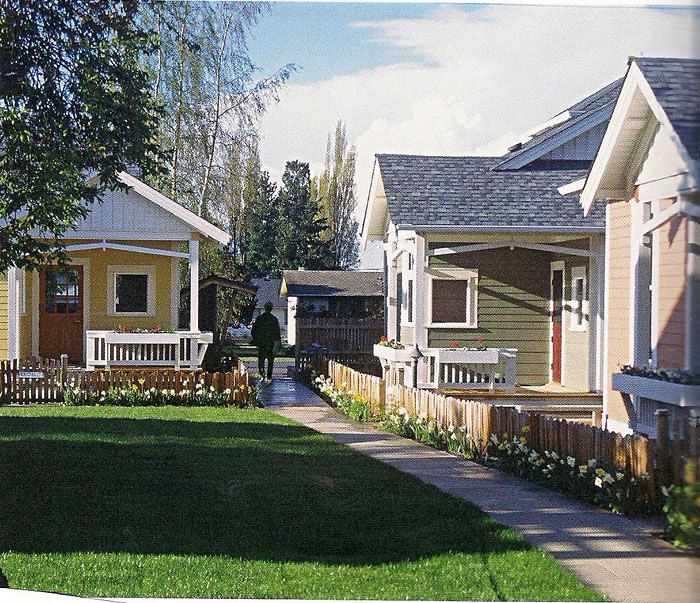
If we will have the wisdom to survive, To stand like slow-growing trees on a ruined place, Renewing, enriching it, If we will make our seasons welcome here, Asking not too much of earth or heaven, Then a long time after we are dead, The lives our lives prepare will live here.”
—Wendell Berry
One of the greenest things we can do in the building industry (“asking not too much of earth or heaven”) is to build small. I hold no moral high ground, but I have never lived in a house that was more than 1200 sq. ft. I prefer living in a small home, especially one that I can afford. It would be hard for me to pay the property taxes on a huge house. Besides, small houses are easier to clean, need fewer repairs, and cost less to heat or cool. Overall, they have helped to make my life a little less complicated.
I think that the key to building a desirable small house is design. Years ago, I helped build three such houses up a canyon in the Santa Monica Mountains filled with huge oaks and sycamore trees. I am especially fond of the sycamore tree, a California native that can reach a height of 100 ft. or more. The older trees have sprawling branches that follow the contour of the earth. Their thin bark peels off, leaving the trunk and branches looking like an old carpenter who has been working out in the sun too long.
Each house had 650 sq. ft., with two bedrooms on the back side. The larger bedroom was about 10 ft. by 15 ft., and the smaller one was 10 ft. by 10 ft. There was a common bath between. The front part—the living and dining areas and the kitchen—took up the remaining space: 12 ft. by 30 ft. These cold measurements don’t do justice to how warm these houses felt inside. Each was finished with two bay windows, deep window sills, wood floors, high ceilings, and wall niches to hold a statue, clock, or flower vase. The steep-pitched roof made room for a sleeping loft in the smaller bedroom. The front had an inviting, Craftsman-style porch along with clerestory windows that let in extra overhead light.
I drove up the canyon months later. The three houses, nestled between the trees, looked like they belonged there. Like soddies, they appeared to have grown out of the earth. Years later, I drove up the canyon again to show the small houses to a friend. I should have known better and rested with my memories. The houses were gone, along with the mighty oaks and sycamores. In their place were huge mansions with fences, locked gates, and cameras keeping a watchful eye on me. Good idea!
I might as well finish the story. Still later on, the hot, dry Santa Ana winds that blow in from the desert every year pushed a fire into the dense canyon brush. More than three hundred homes were burned to the ground. Guess what? Nothing is forever, not even diamonds. Maybe it is best to base our happiness on what lies in our hearts.
The message is out: Our earth is not appreciative of our lifestyles. Like water, it doesn’t need us. We need it. Water and the earth will do fine without us. As Joseph Wood Krutch said, “Both the cockroach and the bird would get along very well without us, although the cockroach would miss us most.”
Across our country and around the world, there is a movement among millions to live more sensibly, to slow down some, try to be present, and make life meaningful. Many people call this the “green movement,” taking a responsibility for our homeland. We are being asked if our lifestyle is sustainable. Are we using more of our limited resources than we are giving back? How do we want to spend our precious life?
Building green means we need to take into consideration the impact our home will have on our health—physically, mentally, and spiritually. A well-designed house can nurture and heal us. Small doesn’t have to mean cramped, uncomfortable, or ugly. We can design our living spaces to be uplifting.
The urban sprawl that we have known up until now has been extremely profitable to a few, but maddening for many of us. It is no longer sustainable to build a single-family dwelling on a rather large plot of land. Having to travel long distances to work via an oft-clogged freeway, with one person per car, can take hours out of our day and affect our mental well-being, adding more anxiety to our already stressed-out lives. Road rage becomes understandable in such situations. How can it make sense that we have to drive several miles just to buy a loaf of bread at an ugly, noninviting strip mall that should never have been built in the first place? Neither the gasoline-driven automobile nor strip malls are sustainable in the long run.
We all know that we can do better than this. We can order our lives in a way that is kind both to our earth and that gives our hearts what they long for. The most sustainable type of transportation is to not drive anywhere at all. We should be able to live in communities where we can walk or bike to most of what we need: jobs, food, theaters, parks, recreation, churches, libraries, the houses of friends, and so on.
My wife and I have been living in our present home for twelve years. Once again, it is small—950 sq. ft. and with two bedrooms—but this 1950s house is more than adequate for the two of us. Actually, it is a special place, easy to care for, and fairly energy efficient, especially after I replaced single-pane windows and insulated underneath the floor and in the ceiling. It has good windows to the east and south. The view up the Coos River and on to the low-lying hills of the coastal range miles away is outstanding. We can sit in our living room and watch the sun rise and name the birds at our feeders—the nervous pine siskin, American goldfinch, chickadee, purple finch, junco, Stellar jay, Townsend warbler, white and golden crowned sparrow, streamlined oriole, and many others that fill our morning air with music.
I love to work, but I don’t think any of us like working at a mindless job. We often do it because we need the money, but we don’t like it. The self-gratitude we get from doing a job well that we like is real. This is especially true if we can dedicate ourselves to learning and practicing one of the fundamental arts of our lives: farming, teaching, cooking, nursing, parenting, love-making, carpentry, painting, and craftwork of all sorts. Working within one of these caring professions offers us a chance to experience a fulfillment that won’t come with filling another shopping cart with plastic junk or pushing one more piece of paper in the office of a huge corporation.
In 1969 when our firstborn, Eric, was a baby, my wife and I spent some time living in a small town in Mexico. We had little money, but we lived simply. It gave us time to figure out what it meant to be parents and to just be with our new creation.
When we returned to our country, it was still safe to hitchhike. We were picked up outside of El Paso by a soap salesman working for Proctor and Gamble. During our ride to Albuquerque, he told us that his wife and he had always wanted to travel, go camping, and have fun. He said that all they ever seemed to do was work and buy more things. He mentioned that two years ago they had bought a full set of camping equipment, set it up in their backyard, slept out one night, and never used it again.
When he dropped us off, he went to the trunk of his car and gave us a sack full of soap samples along with $20. He told us that it made him feel good to help us. Being with us for several hours in a closed car also probably convinced him that we all needed some of his soap. We thanked him, wished him well, gave him a hug, and stuck our thumbs in the air looking for a ride on to Denver.
Fine Homebuilding Recommended Products
Fine Homebuilding receives a commission for items purchased through links on this site, including Amazon Associates and other affiliate advertising programs.

Affordable IR Camera

Handy Heat Gun

Reliable Crimp Connectors
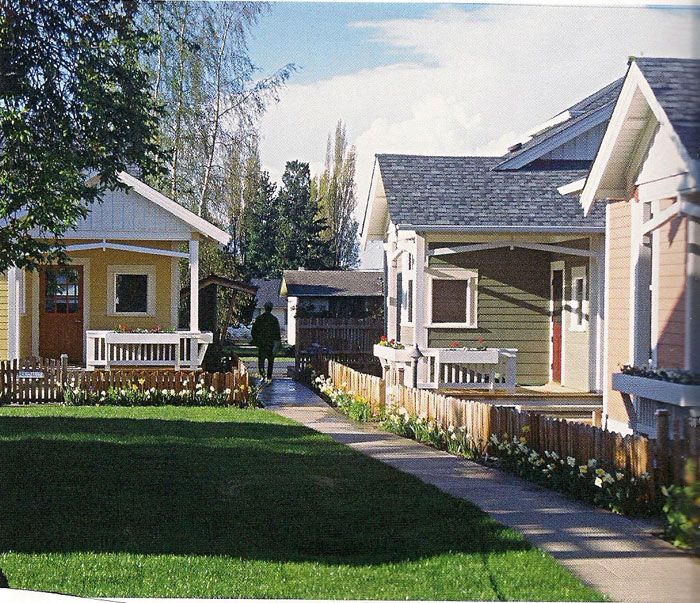
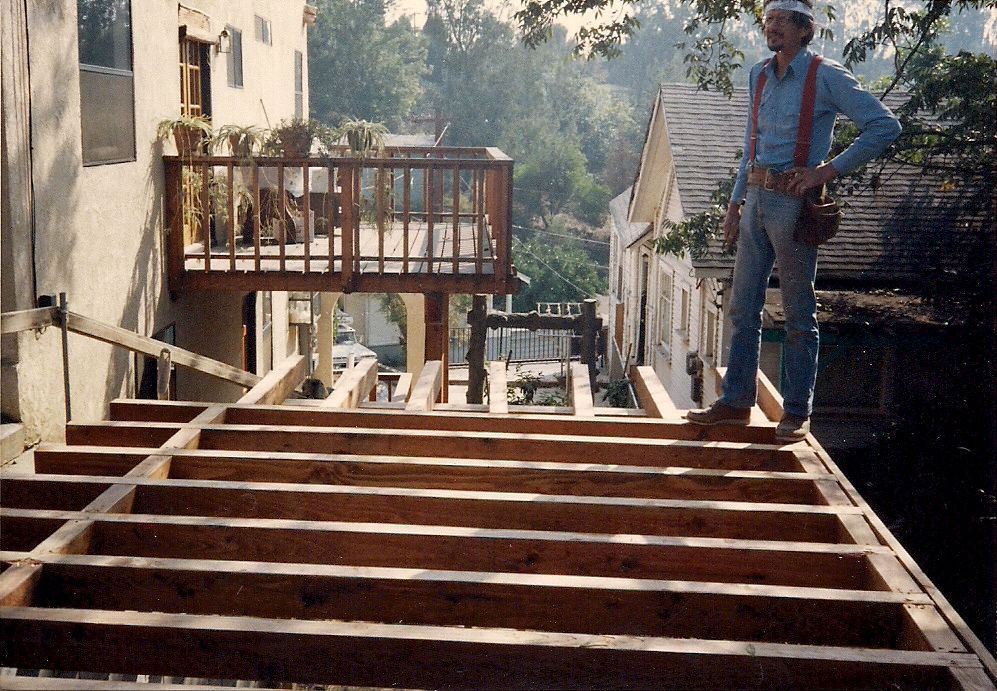
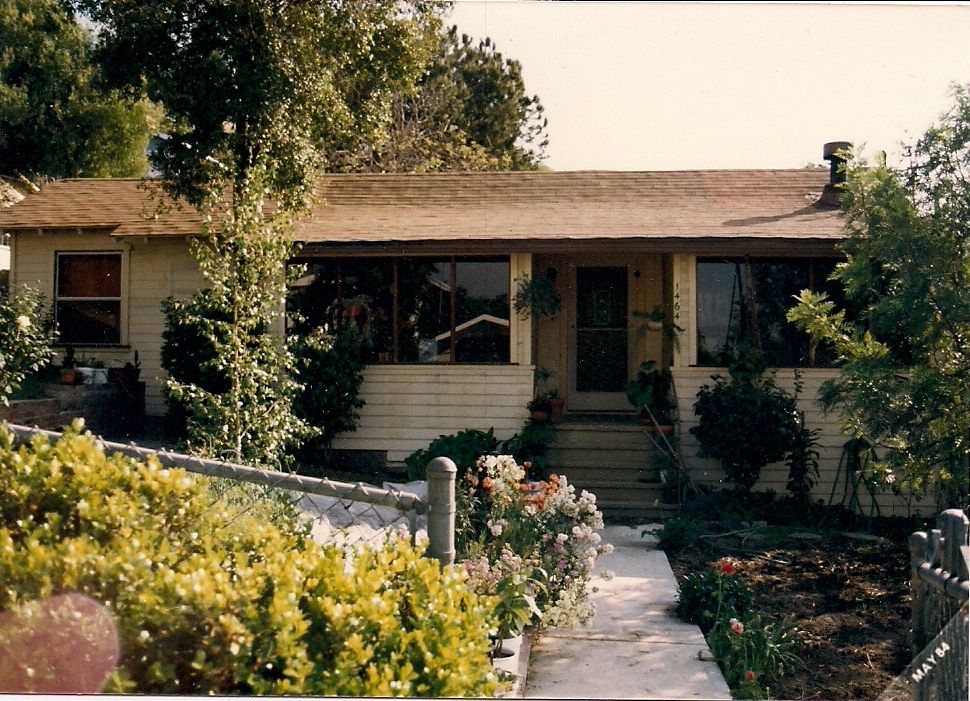
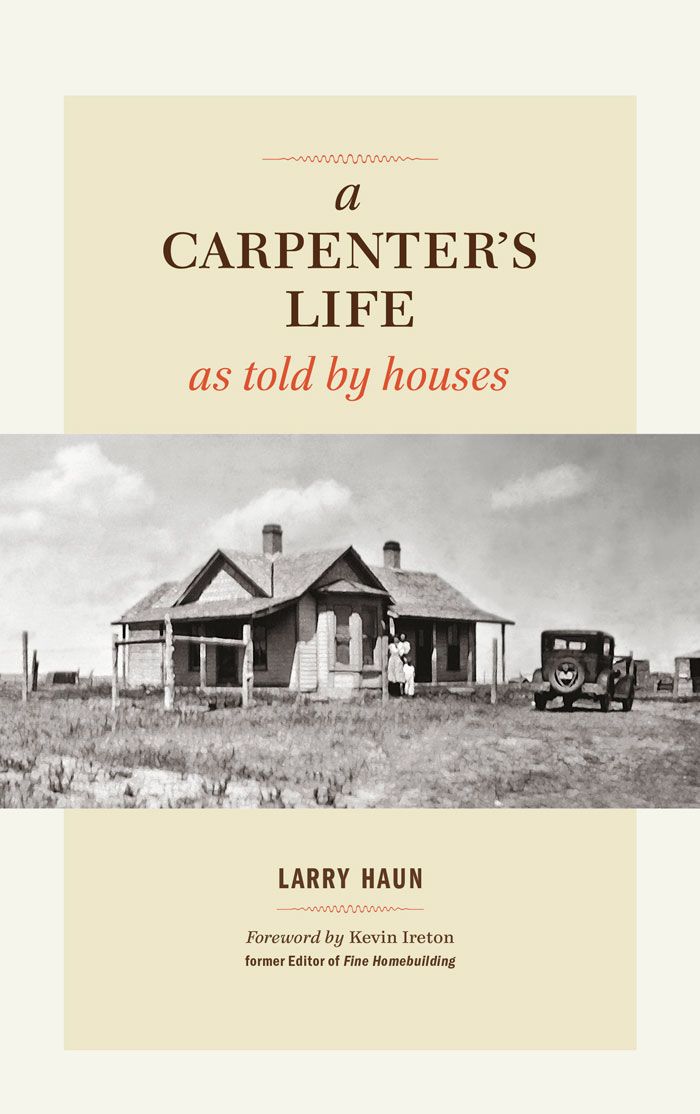




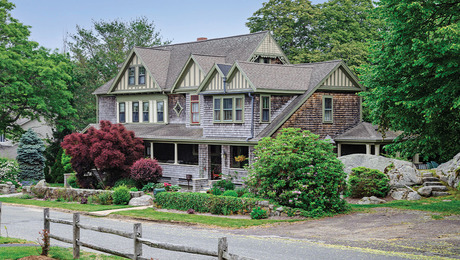


















View Comments
To each his own, I guess.
I grew up in a rural area where many people lived on 100+ acre farms and most lived on 1-10 acre parcels. House sizes were what you'd expect from old farm houses. From that upbringing, I went to university in a major city and for years 'endured' the tight living conditions. After graduating, I was happy to move back to the country and am now married with two kids, two dogs and a 1600sqft house on 1 acre. With all that in mind, I would say that it is as small of a space that I would be willing to inhabit for any length of time.
Just because it popped in my head, here is some useless math:
There is about 2.3B acres of land in the US and about 232M adult citizens which means each person could have nearly 10 acres. Then if you consider that about 104M of citizens are married (thus only need one chunk of land per couple) then we could say that there is about 18 acres per person or couple. Of course we can't use all the land for residential/personal property.. so let's just consider that if we designated 1/2 the US land for housing then we would still be looking at about 9 acres per person or couple. I don't know if those figures work toward any argument but it is interesting to know that if the country were equally divided then I am only using about 11% of my wife and I's allotment and I think that is a good minimum of space.
DC
Gee, this article make me feel all warm and fuzzy, make me want to go hug a tree and sing campfire songs. Sure it does.
It's not a matter of being 'opposed;' it's a matter of perspective. I can't think of any argument in favor of waste, or bad design. Nor can we overlook the temptation to fall into 'armchair philosophy' debates over just what is good design.
The fact is, defining 'good design' is like hitting a moving target; what's the perfect solution today won't be tomorrow. What it comes down to is defining WHO gets to make the choices, choose the criteria- and HOW those decisions will be executed.
One cardinal point keeps popping up: what 'everyone else' in the world is doing. That, IMO, is exactly the wrong focus. America's founders deliberately chose NOT to simply copy what 'everyone' else did when they set up this land. The results - from colonial backwater to THE world power in record time - ought to be proof enough that they chose wisely. The failed attempts by other approaches since then ought to have nailed the coffin shut on any variations on the idea of taking decisions out of the hands of those who have to live with the results.
Small houses? Let the occupant decide. While there are houses whose roofs are measured in square miles (rather than in squares of shingles), I would not consider it appropriate for me to have an opinion about the propriety of the owners' desire. Likewise, if some art teacher at a minor school want to live in a glorified U-Haul, that's his business.
For a 'check' on excessive ambition, let the market be the enforcer. ONE Arab shiek might want a solid gold toilet - but only a government can buy thousands of $600 toilet seats.
Gotta love Reno's constant obsessive fear of communist takeover! Ha.
I imagine him being the one in the "armchair" yelling "Don't tread on me!" but as soon as he finds out his neighbor wants to build a 20 story skyscraper or a mosque is proposed down the road from him his tune changes to "NIMBY, NIMBY, NIMBY!"
I'm no socialist but I can tell you that most of the rules and regulations that our country has enacted since the establishment of our great nation have been for the better and has thus greatly enhanced our way of life. This isn't colonial America anymore, it's not the wild west, and it isn't even still the industrial revolution. We don't trade slaves, we don't need to carry guns outside our pants, and we don't pour gasoline into rivers. What we do is embrace science, technology, globalization, and ecology. We recognize the mistakes we have made in the past and seek methods to never repeat those mistakes.
How we design, build, and maintain our structures is just one niche where we may seek to change our ways. While currently there's really not a lot of regulation forcing anyone to change their building ways, there will eventually come a point where if the populous refuses to change voluntarily then government will have to step in and force the change through regulation. In that sense it's like when my mother used to tell me to clean my room, she'd say "Either you can clean your room or I can clean your room for you. But if I clean your room, I'm tossing all your stuff in the garbage."
DC
Here's my 2 cents. Yes, thing certainly change, nothing last forever. When I built my house in the mid 90's., I was younger, with less aches and pains, and had more money in my pocket. Work was abundant, so why not build and I guess I built big according to this article. Things where cheaper back then, now close to 20 years later the property tax more then doubled, heat oil has quadrupled and I am less motivated to take care of this house. I am not earning nearly has much as I did in the 90's. And everything in life has become extremely more expensive.
Why did I just say all those things? Because going green or becoming one with the earth has nothing to do with the following statement.
I would love to move into a small lot with a 1300sq ft house with the most energy efficient everything. Perhaps all solar power, maybe off the grid if possible. Just so I can turn around and give the finger to all the utility company's. And maybe write a check for property taxes without a comma.
Perhaps the young ones reading these comments will make better choices for their future.
Dreamcatcher:
"If the populous refuses to change then gov't will have to step in"?
That doesn't sound like government of the people, by the people and for the people to me.
If you have to begin with the disclaimer "I'm no socialist", I think you are deluding yourself.
reno didn't have to begin "I'm no conservative." We can tell by his comment that he believes in limited gov't. And we can tell by yours that you are indeed a socialist, and that you approve of government force to further Marxist ideals.
You sir, are dangerous.
Rather than force, I believe in freedom.
Live and let live. Were it not for the wealthy people building ridiculously excessive homes in my area, it would be much harder to support my family. It's hard enough as it is. Your way will make it impossible.
I find it fascinating that so may posts are made that don't address the article and its content but rather the opinions and prejudices of the readers. Larry makes a wonderful point here and it deserves real comment. The "green" movement with leeds points and complicated scales of politically infused nonsense could easily be replaced by the functional simplicity of living with what we require and sharing the rest. The end story of hitch-hiking, filling a car and moving on is a good conclusion and a good start.
The idea of government regulation is just plain stupid. What needs to be done is just what the author is doing. Educate people. Show them a better way and there will be a shift. I've notice in the last few years a growing number of books & articles promoting the 'live smaller' philosophy and it is changing attitudes. It's changed mine.
The idea of going small is a win win situation in this economic times. Educate the people and they will make smart decisions
Open your eyes and wake up already. Government has stepped in or should I say stepped on (us) for a loooooong time now.. It's the Gov.. lousy foreign policies over the past 30 yrs and its anti free trade practices including policies that aloud our manufacturing and industry to shift over seas. Crappy monitory policies which brought us to the point where we are today. I see that the Gov.. is setting all of us up to fail. Weather by design or by pure incompetence it is here.
I can see that within 10 to 20 years, if nothing changes, the american dream that everyone loves to talk about will be just that.............a dream. It will be unattainable for the majority of the population to afford to buy, maintain and live in todays homes, without a major compromise In size and restrictions. Thanks to our wonderful caring politician who are slowly and surly taking what made this country great and gutting it. JMO
Excellent article. Well said and one for the archives.
"Were it not for the wealthy people building ridiculously excessive homes in my area, it would be much harder to support my family."
Is it better to have one family in a 12,000 sqft house or 10 families in 1,200 sqft? One family that can afford champagne and caviar or 10 families that can go out for a decent meal and provide paychecks for cooks, waitstaff, and small restauranteurs? America better wake up fast. The most special thing about us was our large middle class. Like it or not we are all in this together. We can either start caring that everyone willing to work has has medical insurance and a livable wage or we can become a society of wealthy gated communities for a few and 3rd world living for the other 98%.
We are overburdened with college degrees because many jobs not requiring one do not allow you to pursue your dreams, plan for the future, or heaven forbid get sick. Now the value of many of those degrees is questionable when you take into account the 5 figure debt required to finance them and the excessive supply of workers who have them. The trades are suffering too because a smaller middle class = less disposable income = less shopping/dining/entertainment = less commercial buildings or people who can afford to own a home. What's it going to be America - Liberty and justice for all or outrageous wealth for top and picking through the scraps for everyone else?
I agree with renosteinke, you want a small house, go for it. I want a big house, leave me alone. As long as I build it on my land (and comply with zoning) is is none of your business.